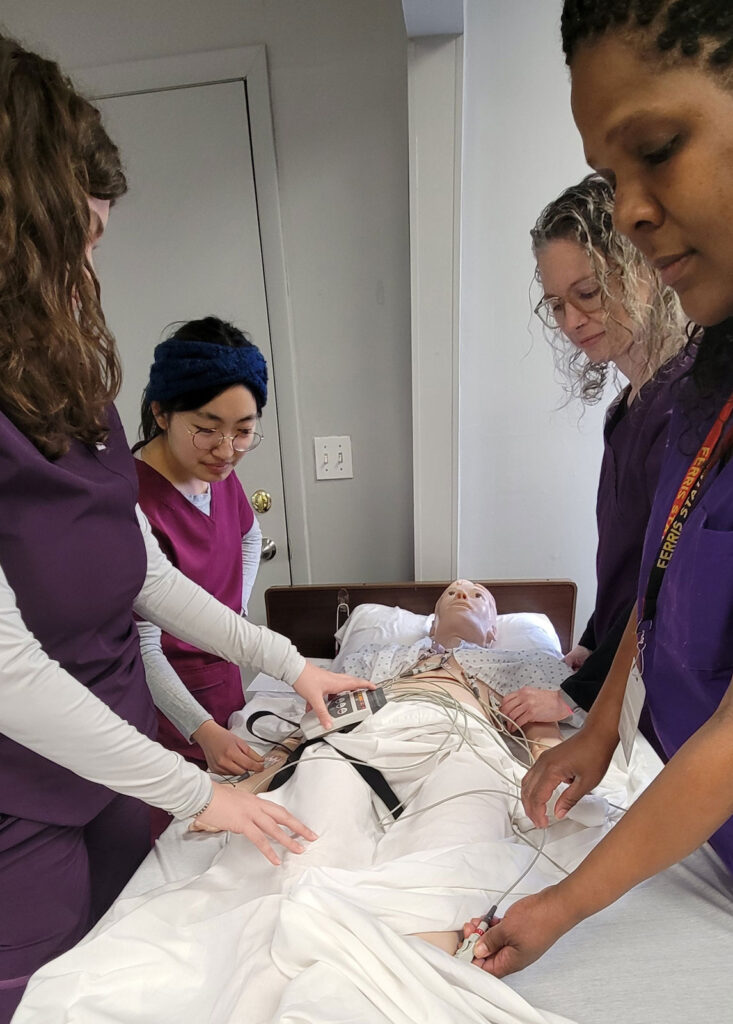Heart to Heart Healthcare Training: Ann Arbor, Lansing
Medical Assistant
21-Week Medical Assistant Program
21-Week Medical Assistant Program
Heart to Heart Healthcare Training is approved through the State of Michigan to provide Medical Assistant training (MA/CMA/CCMA). Our 21-week Medical Assistant Program consists of 5 modules and 100 externship hours that prepare you to become a certified medical assistant and open a wide array of career options in the healthcare industry.
What are the requirements to be accepted into your Medical Assistant program?
Candidates must possess a High School Diploma or GED and be at least 18 years of age. As part of our commitment to maintaining the highest standards, a background check, immunization records, and drug screening may be required for participation in externships.
In-person labs are Tuesday’s and Thursday’s from 1pm to 4pm.
How long is the Medical Assistant Training?
This comprehensive 21-week program is designed for those aspiring to make a meaningful impact in the medical field. Our hybrid format combines the convenience of online lectures with the hands-on experience of in-person labs, ensuring a well-rounded education.
The curriculum is meticulously structured into five modules, covering essential knowledge and skills required for medical assistant proficiency. Additionally, you will gain practical experience through a 100-hour externship, split into 15 weeks of classroom instruction and 6 weeks of real-world training.
In-person labs are Tuesday’s and Thursday’s from 1pm to 4pm.
Classes start every three weeks!
How do I register for the Medical Assistant Program?
The total cost for the Medical Assistant class is $3,500. To register for the Medical Assistant class, we require a $500 deposit at the time of application to secure your spot in the class.
The remaining balance of $3,000 would be due on or before the first day of class. You can register by clicking the apply now button, paying your deposit over the phone, or on our website.
The student is responsible for purchasing one pair of dark purple scrubs for all in-person labs, and all required books.
Do you offer Financial Aid or Payment Plans?
To support your education, we offer several financial assistance options. You can apply through Climb Credit by visiting our Financing page.
Additionally, we accept payments plans to make the investment in your future more manageable. If you are interested in setting up a payment plan, please contact Heart to Heart directly for further information.
While we do not offer financial aid through FASFA at this time, other avenues of support are available. You may consider reaching out to your local Michigan Works office to see if you qualify for their funding programs. Furthermore, the Michigan Skills Achievement Scholarship is another potential resource for financial assistance.
Medical assistants are regarded as generalists in the healthcare delivery system. As such, they need to have a broad range of knowledge, skills, and abilities. Medical assisting programs prepare graduates for employment in the allied health profession. Medical assistants are commonly considered healthcare delivery generalists because they perform a range of services in various settings, such as outpatient and ambulatory healthcare settings. Duties vary with the size, specialty, and location of the medical practice. Medical assistants work under the direction and supervision of a physician, office manager, or other healthcare professional.
Medical assistant duties include administrative and clinical functions. Front-office activities include setting appointments, greeting and directing patients, answering phones, updating patient files and records, preparing written correspondence, and completing insurance forms. They may also include scheduling referrals, hospital admissions, and diagnostic tests.
Clinical (back-office) duties include obtaining vital signs and patient histories; assisting with examinations, treatments, and procedures, such as electrocardiograms, injections, and wound care; collecting specimens, such as by phlebotomy; performing simple (waived) laboratory tests; and sterilizing medical instruments. Depending on state laws, a medical assistant may prepare and administer some injections under a physician’s direction.
Medical assistants typically work a 40-hour week. However, part-time, evening, and weekend hours are possible. They primarily work in clean, well-lit environments that require some physical activity. Medical assistants interact with patients, colleagues, and medical professionals, often handling multiple tasks and responsibilities at the same time.

TOP 12 MOST FREQUENTLY PERFORMED RESPONSIBILITIES